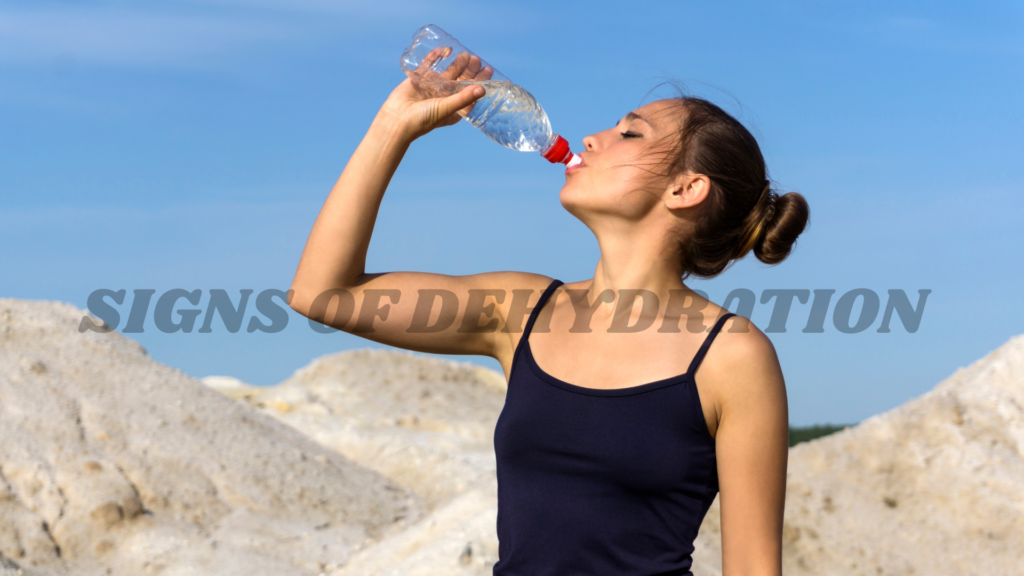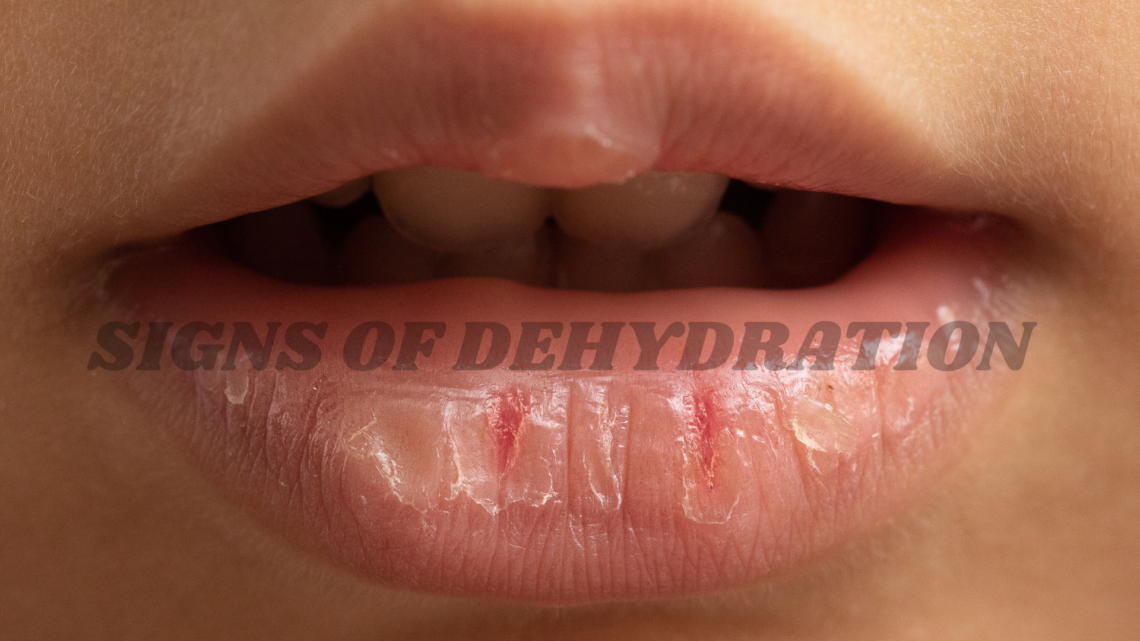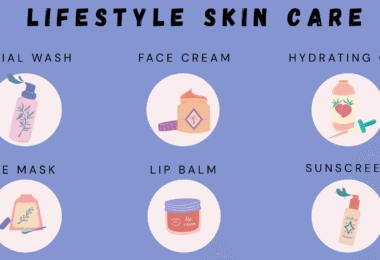Understanding the signs of dehydration is crucial because even mild dehydration can affect physical and mental performance. In more severe cases, it can lead to serious health issues or medical emergencies. Dehydration is a condition that often goes unnoticed until it becomes serious. It’s not just about being thirsty — it’s about your body signaling that it’s running low on an essential component for survival: water.
In this in-depth article, we’ll explore the 10 signs of dehydration, break down why each symptom occurs, and offer practical solutions to help you stay well-hydrated. Whether you’re a busy professional, athlete, or caregiver, knowing these signs could protect your health or someone else’s.
What is Dehydration?
Dehydration occurs when your body uses or loses more liquefied than it takes in. When your body doesn’t have enough water to carry out its normal functions, you become dehydrated. Since water plays a role in nearly every vital process, losing even a small percentage can cause noticeable problems.
Why Is Water So Important?
- Regulates body temperature
- Keeps joints lubricated
- Protects spinal cord and sensitive tissues
- Removes waste via urination, perspiration, and bowel movements
Common Causes of Dehydration
- Inadequate water intake
- Excessive sweating (from exercise or heat)
- Illnesses (fever, vomiting, or diarrhea)
- Certain medications (diuretics)
- Underlying medical conditions (e.g., diabetes)
10 Signs of Dehydration: Warning Signals to Watch For

1. Dry Mouth and Increased Thirst
One of the earliest and most common signs of dehydration is a dry or sticky mouth. When fluid levels in the body drop, your salivary glands produce less saliva, leading to dryness. Additionally, your brain triggers a thirst response to encourage fluid intake.
What to Do:
- Sip water frequently throughout the day
- Avoid sugary drinks which can worsen dehydration
2. Dark Yellow Urine or Decreased Urine Output
Urine color is a dependable sign of hydration eminence. The darker your urine, the more dehydrated you likely are. Reduced frequency of urination is another red flag.
Urine Color Guide Table:
| Urine Color | Hydration Level |
| Pale Yellow | Well Hydrated |
| Dark Yellow | Mild Dehydration |
| Amber/Orange | Severe Dehydration |
| Brown | Possible Medical Issue |
Tip: Aim for pale straw-colored urine throughout the day.
3. Fatigue and Weakness
Feeling unusually tired or weak may be due to dehydration. When fluid levels are low, your blood volume decreases, making your heart work harder to pump blood and oxygen to muscles and organs.
Why It Happens: Dehydration impacts energy production at a cellular level and impairs physical endurance.
What to Do: Rehydrate with water and include electrolyte-rich drinks if you’ve been sweating heavily.
4. Dizziness and Lightheadedness
Standing up too quickly and feeling dizzy? It could be orthostatic hypotension, a drop in blood pressure caused by dehydration.
How It Works: Less water means lower blood volume, which can decrease blood pressure and reduce oxygen to the brain.
What to Do: Sit or lie down immediately and drink fluids slowly until symptoms subside.
5. Dry or Flaky Skin
Healthy skin should be soft and elastic. When you’re dehydrated, your skin may lose its plumpness and elasticity, becoming dry, tight, or itchy.
Skin Turgor Test: Moderately squeeze the skin on the back of your hand. If it takes time to return to normal, you may be dehydrated.
6. Rapid Heartbeat or Breathing
A racing heart or shortness of breath may signal that your body is compensating for fluid loss by increasing circulation and oxygen delivery.
Why This Happens: Your body tries to maintain blood pressure and oxygen levels, especially during physical exertion or heat.
7. Headaches
Even mild dehydration can trigger headaches or migraines. This is due to reduced fluid levels surrounding your brain, which can cause it to temporarily contract and pull away from the skull.
Solution: Drinking water slowly over 30–60 minutes often eases headache symptoms.
8. Muscle Cramps and Spasms
Dehydration often causes an imbalance in electrolytes like sodium and potassium, which can lead to muscle cramps, particularly during or after exercise.
Hydration Tip: Replenish with water and electrolytes, especially after heavy sweating or intense physical activity.
9. Sunken Eyes and Dark Circles
Your eyes can reveal a lot about your hydration status. When dehydrated, the tissues around your eyes lose fluid and elasticity, creating a sunken appearance or dark circles.
10. Confusion or Irritability
Cognitive functions like concentration, memory, and mood are affected by hydration. In severe dehydration, confusion, disorientation, or irritability may occur.
Serious Warning: These signs require immediate rehydration and possibly medical attention.
How Much Water Should You Drink Daily?

Hydration needs vary, but general recommendations include:
| Group | Daily Water Intake Recommendation |
| Men | 3.7 liters (15.5 cups) |
| Women | 2.7 liters (11.5 cups) |
Factors that increase your water needs:
- Hot climate
- Physical activity
- Pregnancy or breastfeeding
- Health conditions (e.g., kidney disease)
Important: Fluid needs can also be met through food (fruits, vegetables, soups).
Who’s Most at Risk of Dehydration?
High-Risk Groups:
- Infants and toddlers: They have higher water needs per body weight.
- Elderly adults: Aging reduces thirst sensitivity.
- Athletes: Intense physical activity increases sweat and water loss.
- People with chronic illnesses: Conditions like diabetes or kidney disease elevate risk.
Preventing Dehydration: Habits for Daily Life
Tips for Staying Hydrated
- Carry a water bottle everywhere
- Drink water before, during, and after exercise
- Start your day with a glass of water
- Include fruits and veggies like cucumbers, oranges, and strawberries
- Avoid sugary, caffeinated, or alcoholic drinks
Hydrating Foods to Include:
- Watermelon (92% water)
- Cucumber (96%)
- Strawberries (91%)
- Oranges (86%)
- Celery (95%)
When to Seek Medical Help for Dehydration
Contact a doctor if you notice:
- No urination in over 8 hours
- Dry mouth and sunken eyes
- Skin remains tented after pinching
- Rapid heartbeat and breathing
- Seizures or unconsciousness
Severe dehydration can lead to heatstroke, kidney damage, or death if not treated.
Stay Ahead of the Signs of Dehydration
Understanding the signs of dehydration allows you to take control of your health. Don’t wait until you’re thirsty — by then, dehydration has already begun. Make water a part of your lifestyle, not an afterthought.
Remember: A well-hydrated body functions better, feels more energetic, and is less prone to illness.
FAQs
Q1: Can dehydration affect mental focus?
Yes. Dehydration can impair concentration, memory, and alertness.
Q2: Does drinking water help with weight loss?
Drinking water before meals might help you feel fuller, which can lead to eating fewer calories.
Q3: Can coffee or tea count toward my daily water intake?
Yes, but only in moderation. Consuming too much caffeine can have a diuretic effect, so it shouldn’t be your only source of hydration.
Q4: How can I make water more enjoyable to drink?
Try infusing it with natural flavors like lemon, mint, cucumber, or berries.
Have you recognized any signs of dehydration in yourself lately? Share your story in the comments, and pass this article on to friends or family. Knowledge is power — let’s stay healthy and hydrated together!








Leave a Comment